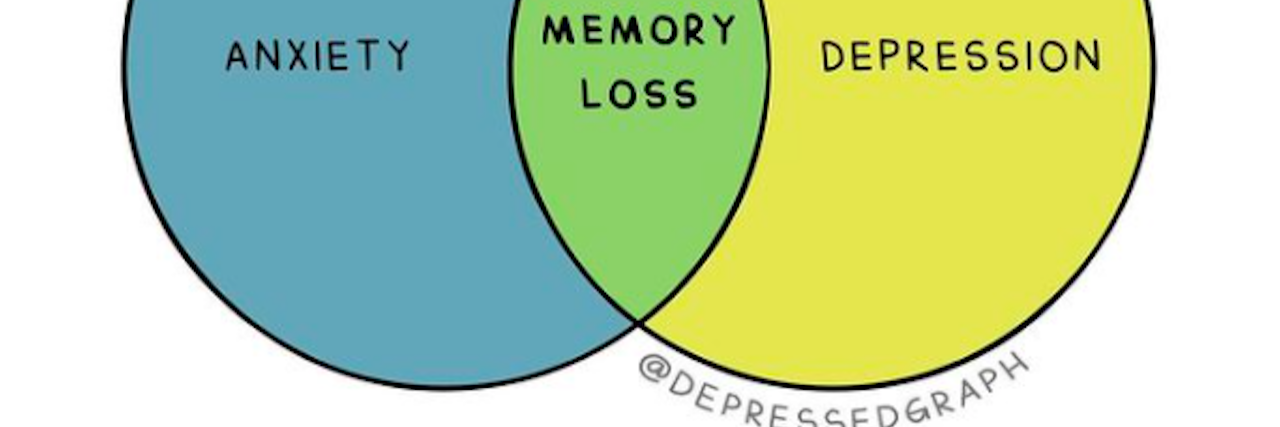This Graphic Highlights That Anxiety and Depression Both Cause Memory Loss
Artist and comic @depressedgraph found an effective way to highlight that depression and anxiety can cause memory loss — a mental health symptom we don’t address often enough.
Both anxiety and depression can cause memory loss, as @depressedgraph depicted in a colorful Venn diagram graphic showing the overlap between depression and anxiety with memory loss. Each mental health condition can affect your memory in different ways.
why is no one talking about this? pic.twitter.com/YiqjUfBByn
— graphing my depression (@depressedgraph) December 29, 2020
Research suggests depression causes you to have a harder time recalling details. For example, you might remember a family dinner but not everything that was served during the meal. You’re also more likely to struggle with prospective memory — remembering to do future tasks like taking your medication. With depression, your memory can also tilt toward a negative bias, where it’s easier to recall negative memories compared to positive ones.
Anxiety typically affects your working memory. Working memory helps you remember the info you need for your day-to-day life. When anxiety impacts your working memory, have trouble concentrating or make mistakes more often. Working memory is also the likely culprit when you forget where you parked, can’t remember what you planned to buy at the store or misplaced your keys.
While we don’t talk about memory loss as a symptom of anxiety and depression as often, especially in combination, it can have a major impact on your life. (Memory loss is a symptom of many mental illnesses.)
“When I realized how significantly my memory had changed, it chipped away at my previous identity. I panicked when I realized I couldn’t study and remember information the way I used to,” wrote Mighty contributor Liz I. about depression and memory loss. Liz added:
As painful as these hits to my memory, creativity and processing can be, I can point out one positive result. I am slightly less perfectionistic and still working on it. Instead of saying ‘should,’ I am learning to identify the difference between ideal and realistic.
Image via @depressedgraph/Instagram

